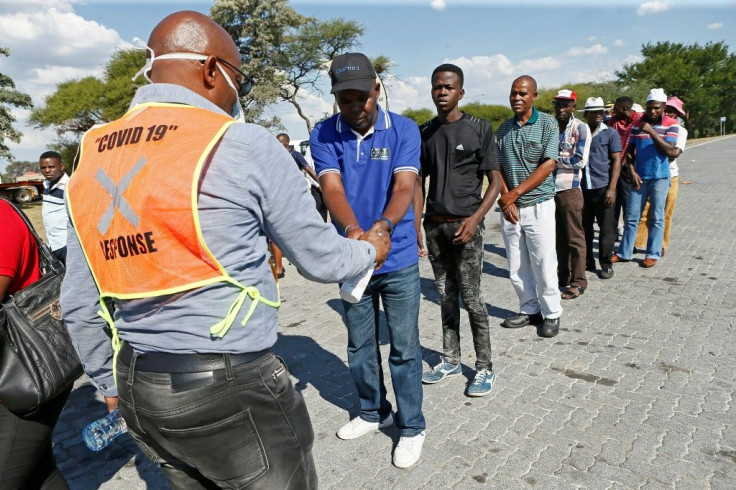Coronavirus Economy: Asian Development Bank Says Pandemic Could Cost World $4.1 Trillion

KEY POINTS
- There are more than 1 million coronavirus infections around the world with nearly 56,000 deaths
- IMF is increasing its emergency response fund from $50 billion to $100 billion
- African countries are slashing their GDP projections for 2020 by as much as two thirds while the Asian Development Bank cut its projections for developing Asian countries by more than half
The Asian Development Bank said Friday the coronavirus pandemic could cost the world economy $4.1 trillion while the heads of the International Monetary Fund and the World Health Organization said getting the outbreak under control is more important than saving jobs in the short term.
The Asian Development Bank report in March estimated the global gross domestic product loss due to the virus at just $347 billion, but that was before the pandemic shifted from China to Europe and the United States.
In early afternoon Friday, the number of confirmed global infections had risen to nearly 1.06 million with at least 55,781 deaths.
“No one can say how widely the Covid-19 pandemic may spread, and containment may take longer than currently projected,” chief ADB economist Yasuyuki Sawada said in the report. “The possibility of severe financial turmoil and financial crises cannot be discounted.”
IMF Managing Director Kristalina Georgieva said during the daily WHO briefing the IMF is doubling its emergency response capacity to $100 billion to the most vulnerable countries, many of them in Africa. She said a major impact of the pandemic is the danger of reversing the progress made in recent years.
Burkina Faso Thursday cut its GDP forecast for 2020 from 6.3% to 2% while the Ivory Coast earlier halved its prediction to 3.6%. Niger predicted growth of 4.1%, down from 6.9%. The ADB revised its growth forecast for developing countries in Asia down to 2.2% from its 5.5% September prediction.
“The evolution of the global pandemic -- and thus the outlook for the global and regional economy -- is highly uncertain. Growth could turn out lower, and the recovery slower, than we are currently forecasting. For this reason, strong and coordinated efforts are needed to contain the COVID-19 pandemic and minimize its economic impact, especially on the most vulnerable,” Sawada said.
“The course of the global health crisis and the fate of the global economy are inseparably intertwined. Fighting the pandemic is a necessity for the economy to rebound,” Georgieva and WHO Director General Tedros Adhanom Ghrebreyesus wrote in an op-ed.
Georgieva said the IMF and World Bank would be creating a short-term instrument to support countries with strong fundamentals to prevent liquidity from drying up.
Georgieva praised central banks and finance ministries in advanced countries for taking decisive and immediate action in the face of the outbreak. She said such actions were “unprecedented” and would go a long way to stabilizing the world economy and mitigate the impact on the developing world.
© Copyright IBTimes 2025. All rights reserved.






















